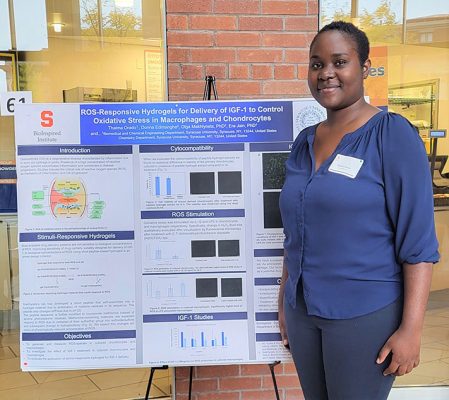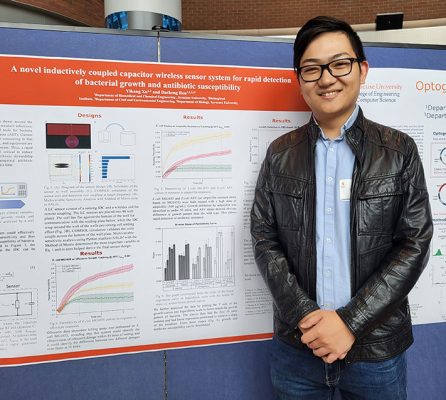NASA Award Helps Doctoral Student Develop Space-Structure Composite Materials
Second-year graduate student Andrea Hoe grew up designing and building projects with her father in their backyard. She also loved spending time with her family surveying the night sky. As a young child, she wanted to be an astronaut. So,…


 Why did you choose Syracuse for your graduate studies?
Why did you choose Syracuse for your graduate studies? Why did you decide on Syracuse for your doctoral program?
Why did you decide on Syracuse for your doctoral program?